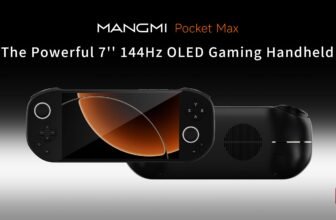Advanced Micro Devices (AMD) has taken a significant step towards bolstering its support on the Linux platform by releasing the XDNA driver, designed specifically for the APUs featuring the “Ryzen AI” capabilities. This move is in line with AMD’s commitment to expanding the utilization of its dedicated AI engine, Ryzen AI, which was first introduced at CES 2023.
The Ryzen AI co-processor, an on-die and dedicated chip, plays a pivotal role in boosting AI capabilities in AMD’s processors. According to AMD, the Ryzen AI Engine can handle up to four concurrent AI streams during multitasking, providing up to 35% higher responsiveness compared to a system with just a single AI stream. Initially featured in the Ryzen 7040 series “Phoenix” APUs, the Ryzen AI Engine has garnered positive feedback from users.
However, one notable gap in AMD’s support was the absence of Linux compatibility for the Ryzen AI Engine. In response to this, AMD has now introduced the XDNA AI driver on Linux, marking the company’s commitment to providing a comprehensive and versatile user experience across different platforms.
Reports from Phoronix indicate that AMD has publicly released the first code for the XDNA AI driver on Linux. This driver extends support for the “Ryzen AI” engine to the platform, specifically targeting Phoenix and Hawk Point APUs. Furthermore, it has completed support for the upcoming next-gen Strix Point APUs. Users interested in adopting the driver must ensure that they have at least the Linux 6.7 kernel installed, with “IOMMU SVA” support enabled.
The system requirements for the XDNA driver include a Ryzen AI processor, such as the Phoenix or Strix, Ubuntu 22.04 as the operating system, and the Linux Kernel v6.7 with IOMMU SVA support. Additionally, users are advised to have the XRT base package installed and can build it from the xrt submodule in the repository.
The inclusion of the XDNA driver in AMD’s software resources signifies a major stride forward. This not only allows users to harness the full potential of the “Ryzen AI” engine’s AI performance but also underscores AMD’s commitment to optimizing its resources for the best possible user experience.
In the Ryzen 8040 APU family, AMD has already provided a substantial 60% boost to the NPU (Neural Processing Unit) performance. Furthermore, the company promises a 3x boost later this year with the introduction of Strix Point APUs. This aggressive approach aligns with Intel’s efforts to enhance NPU (AI) performance in its future CPU families, contributing to the continuous enrichment of the AI PC ecosystem with robust solutions and capabilities. The competition between AMD and Intel is poised to drive innovation and elevate the overall AI experience for PC users.










